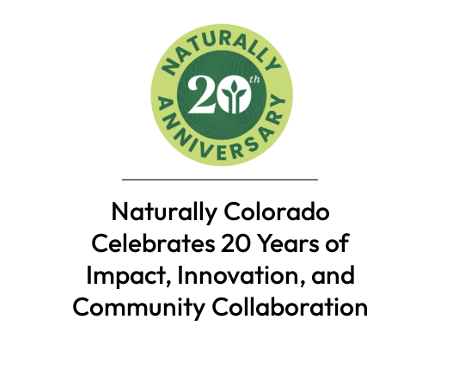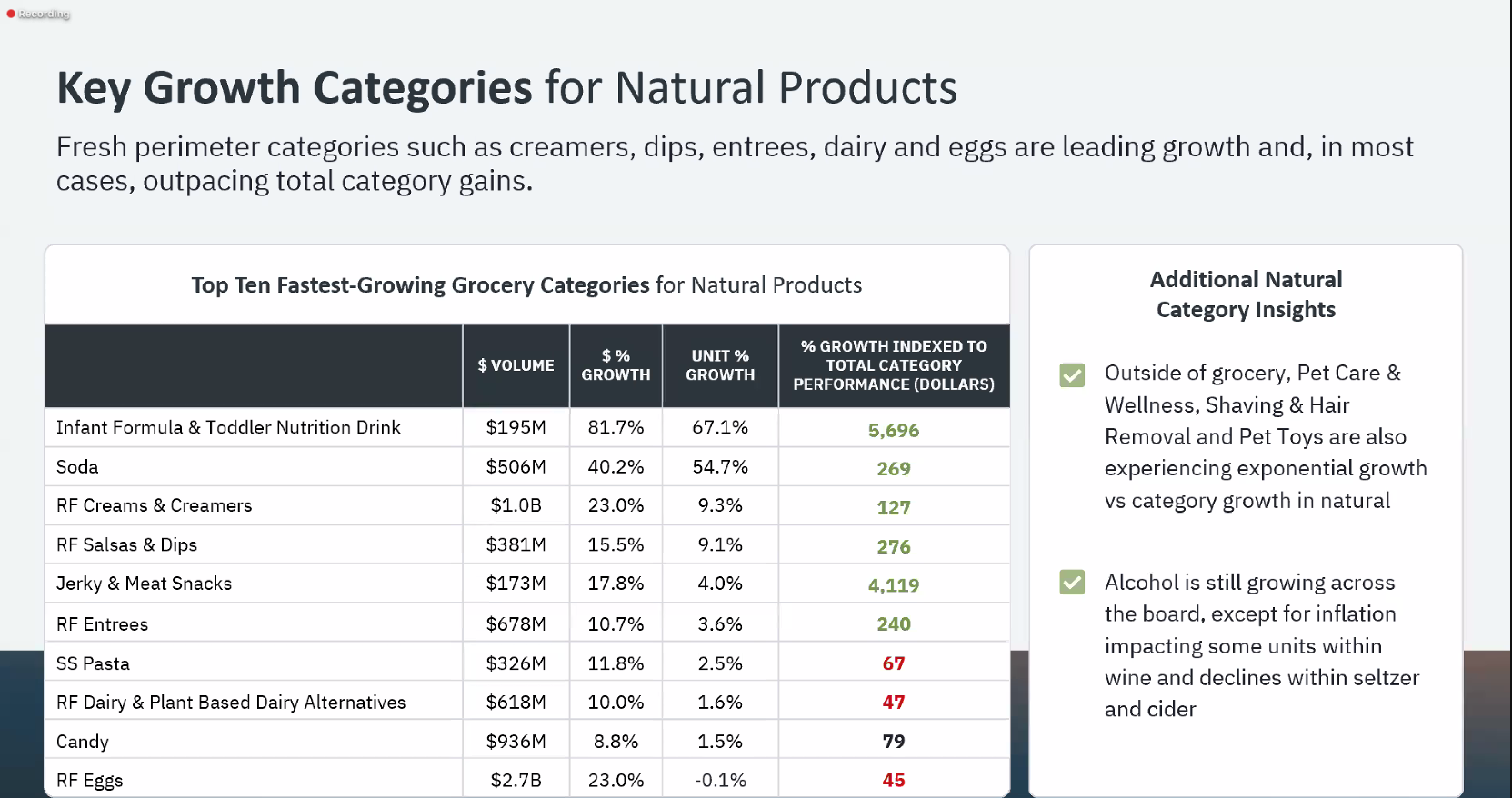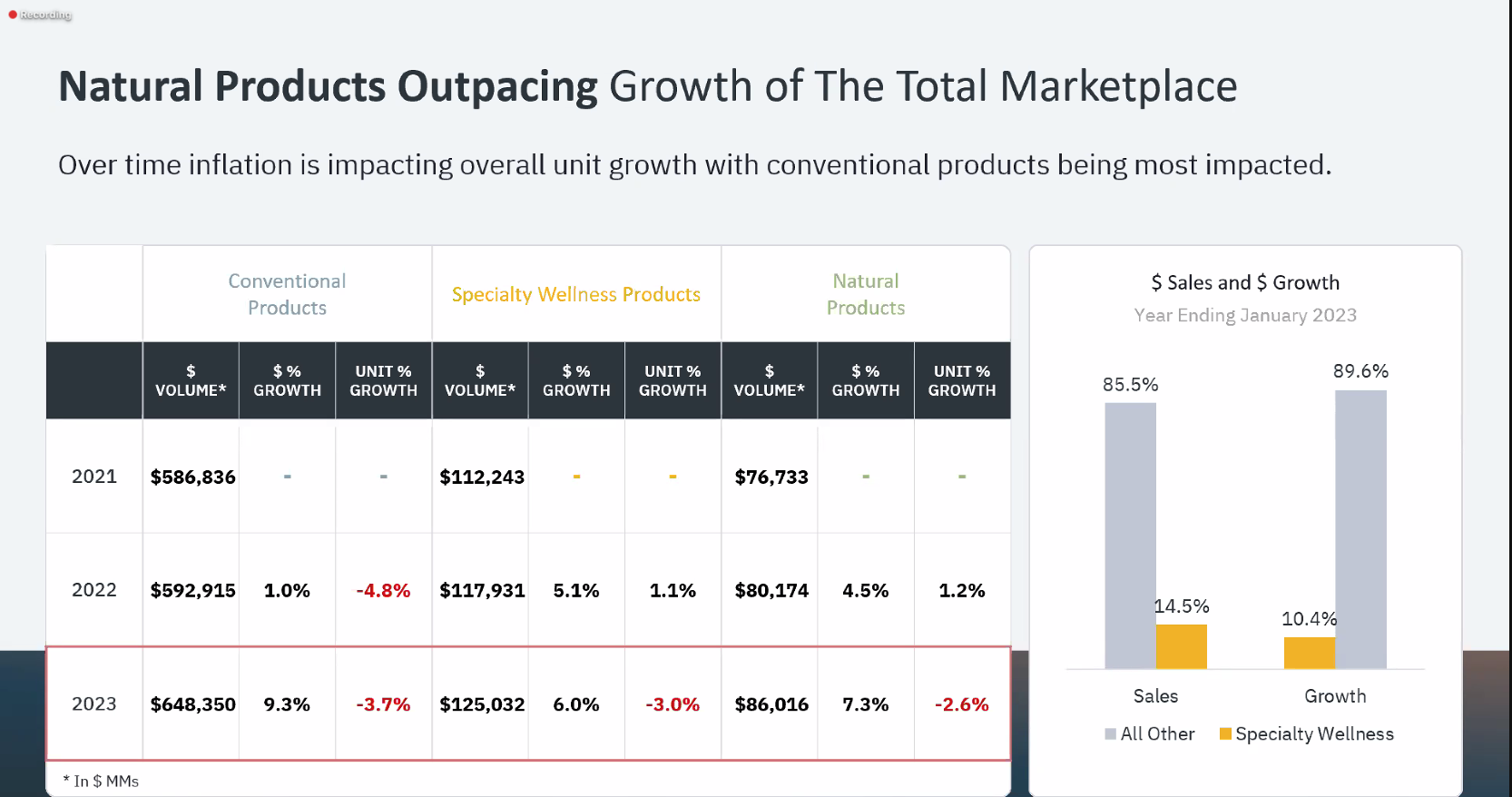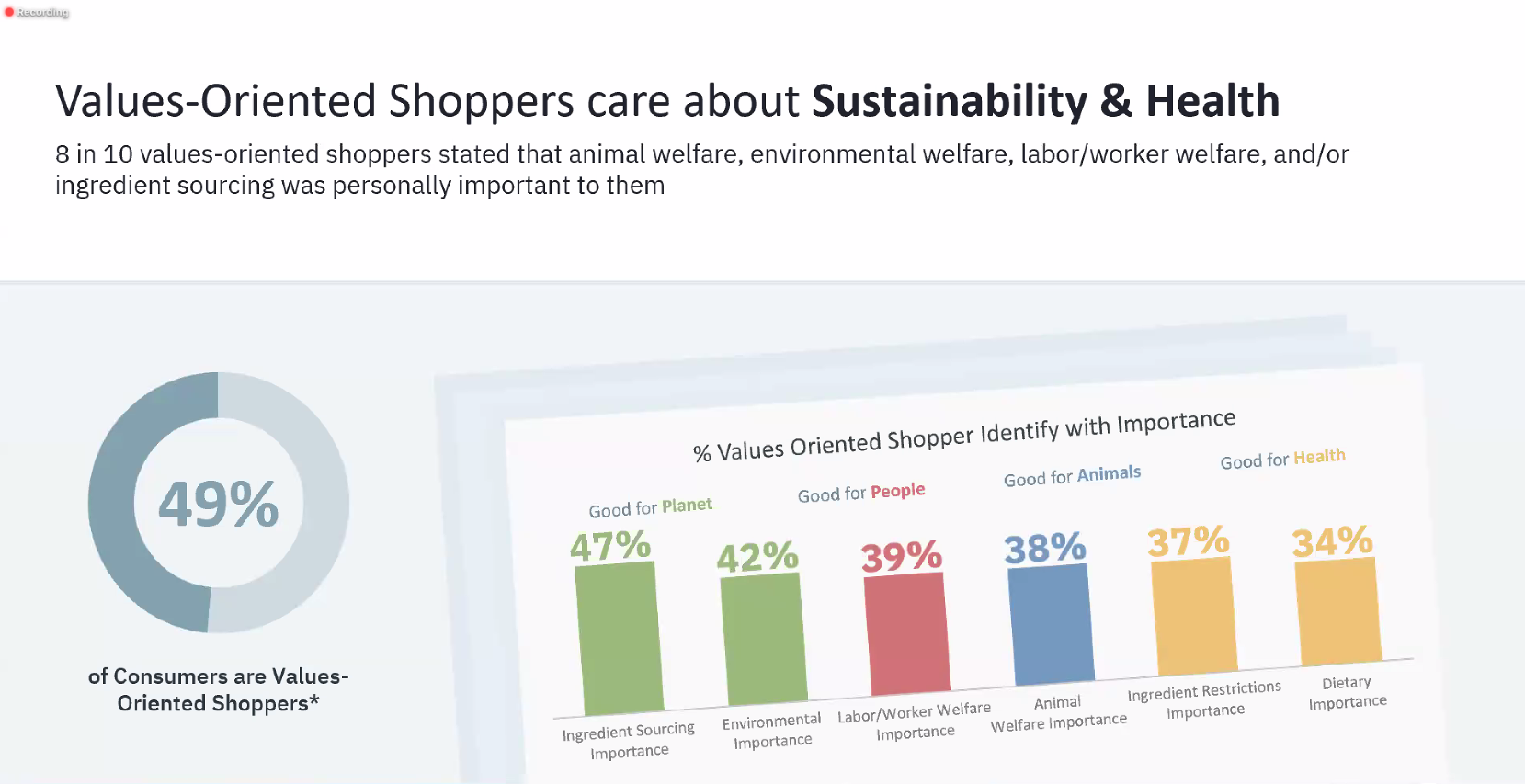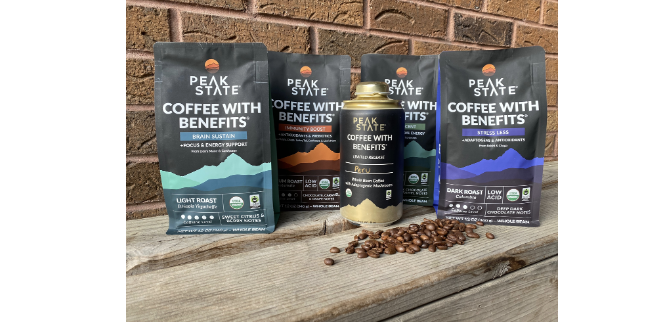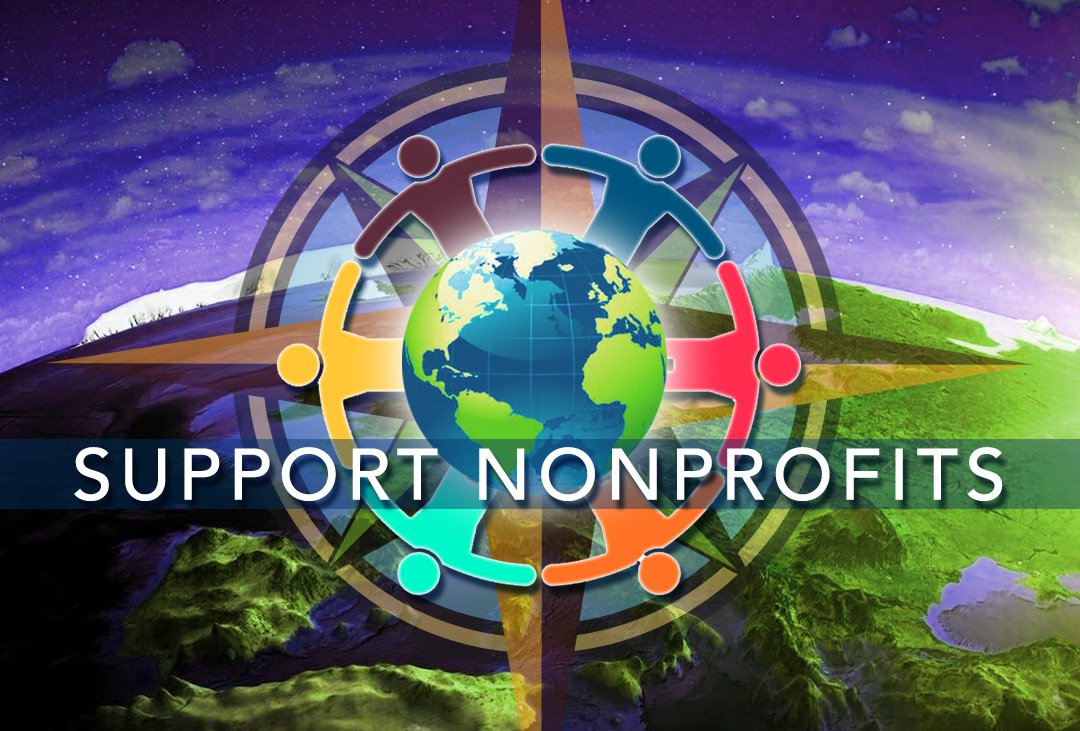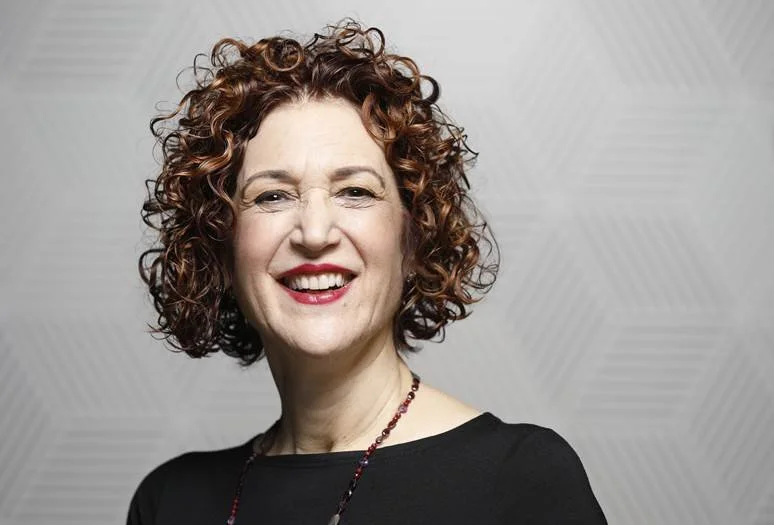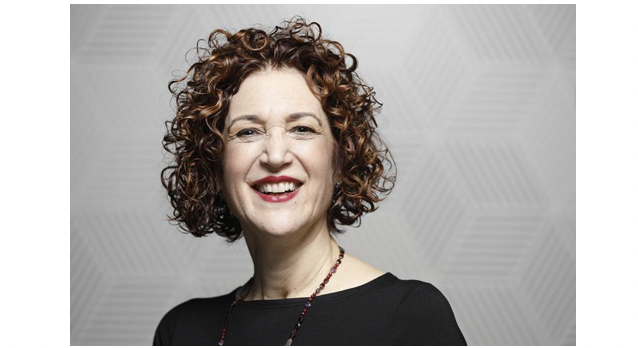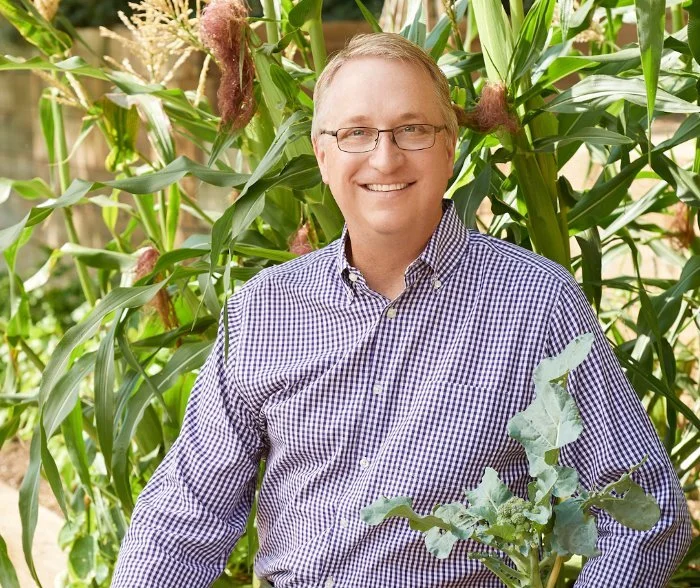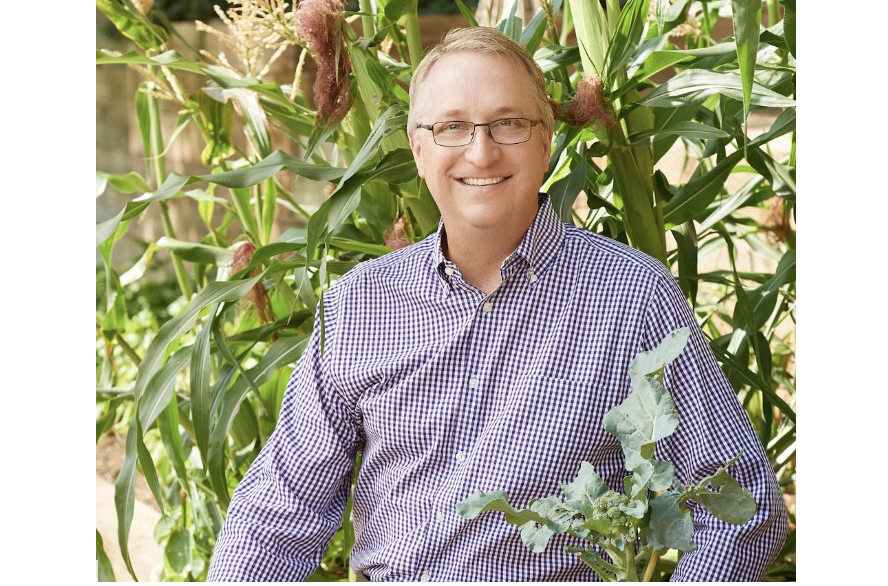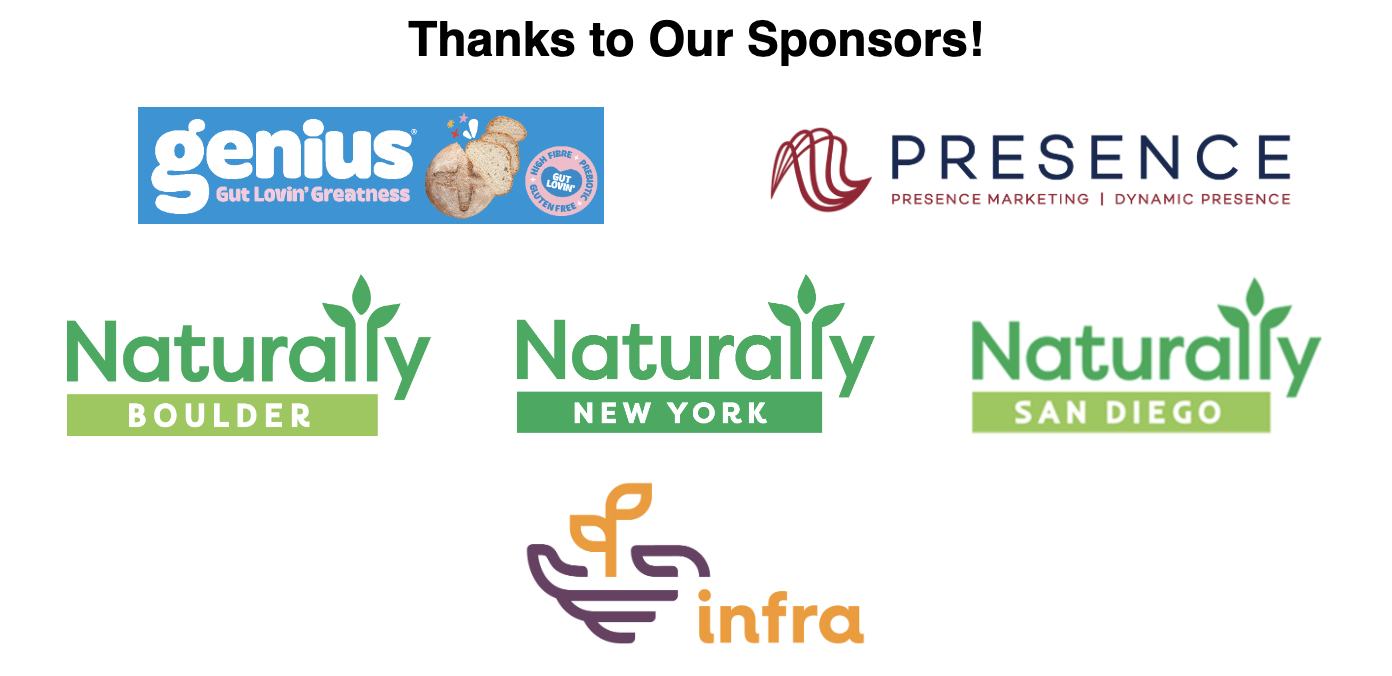Naturally Colorado Celebrates 20 Years of Impact, Innovation and Community Collaboration
From Its Roots in Boulder to Statewide Expansion, Naturally Colorado Continues to Nurture a Thriving Ecosystem
BOULDER, Colo. (April 23, 2025) — Naturally Colorado, the leading community-driven organization dedicated to conscious business in the natural and organic products industry, proudly celebrates its 20th anniversary this year. The organization continues to inspire and support the next generation of purpose-driven companies, solidifying the state as a premier hub for launching and scaling natural product businesses.
A Legacy of Growth and Impact
Since its founding, Naturally Boulder, now Naturally Colorado, has been instrumental in shaping the state’s natural products industry, contributing $3.1 billion to the Colorado economy today. As the original and leading chapter of the Naturally Network, Naturally Colorado’s influence has extended nationwide, inspiring similar communities and reinforcing the movement toward sustainability and values-driven entrepreneurship.
“At a time when conscious business leadership is more important than ever, Naturally Colorado remains committed to fostering innovation, collaboration, and impact,” said Kristine Carey, executive director of Naturally Colorado. “As we look ahead to the next 20 years, we invite our community to join us in shaping a future that is both sustainable and inclusive.”
Celebrating an Incredible Milestone
Colorado is launching four key initiatives to ensure continued growth and impact:
● Join our Community: Naturally Colorado aims to grow its membership by 20% in 2025, strengthening its network of entrepreneurs, investors and conscious business leaders. By becoming a member, individuals and organizations gain access to valuable resources, networking opportunities and educational programs designed to support their growth and success. Learn more here.
● Celebrate the Past, Present & Future: The Naturally Rising: The Conscious Business Pitch Competition on April 2 marked the start of Naturally Colorado’s 20th Anniversary celebration, bringing together industry leaders, investors and natural products entrepreneurs to recognize the next generation of mission-driven brands and the impact of the organization. Five brand finalists competed and Corpse Reviver, a functional hydration beverage brand, was awarded the grand prize valued at over $110,000 and included a booth at New Hope’s Newtopia Now (taking place in Denver in August 2025), a cash investment, an entry to the national Naturally Rising pitch competition and a robust suite of business services. Check out the details here.
● Support Growth: To expand its statewide programming and outreach, Naturally Colorado is on a mission to raise $50,000 in 2025. These funds will be used to develop educational initiatives, mentorship programs and business support services that empower conscious entrepreneurs and businesses to thrive. Contribute to our Education & Expansion Fund powered by Conscious Alliance a 501(c)3, and your gift is tax-deductible.
To further honor the Naturally Colorado community, the organization is creating a “Visionary Change Makers” series featuring legacy leaders who helped shape the Colorado natural products industry and still champion it today.
Looking Ahead
As a statewide organization, Naturally Colorado has an opportunity to inspire collaboration and innovation in regions and rural communities we haven’t been able to serve before. Through statewide collaboration, we hope to empower the success of people and businesses across Colorado, all while staying true to their values.
The magic of Naturally Colorado is our passionate community, and we all have an important part to play in the organization’s next 20 years. Together, we can continue to cultivate a bright and meaningful future for our Colorado natural products community and a more sustainable future for all.
About Naturally Colorado
Naturally Colorado is a community-driven organization dedicated to nurturing conscious growth, leadership and innovation within Colorado’s natural and organic products industry. For 20 years, the organization has supported purpose-driven businesses through networking, education, and advocacy. Naturally Colorado brings the natural product community together to find a unique path to success and grow business ventures. Visit us online at naturallycolorado.org, and find us on Facebook, Instagram and LinkedIn.
Media Contact
Alaina D’Arcangelo, AND Communications, adarcangelo727@gmail.com
Partnerships & Collaborations
Kristine Carey, Naturally Colorado, kristine@naturallycolorado.org
Naturally Network Mid-Year Update: Natural Products Outpacing Growth of the Overall Marketplace
This article first appeared in Presence Marketing’s July 2023 newsletter.
By Steven Hoffman
There are “some key areas where natural continues to be really important and shoppers are continuing to engage despite inflation where they're saying, ‘Natural's important to me and I will continue to spend a little bit of extra money despite price.’” – Jessica Maniscalco, SPINS
Addressing the ongoing theme of inflation, Jessica Maniscalco, Senior Retail Insights Manager of market intelligence firm SPINS, said, “While the impact is still present in natural and specialty accounts, it’s being felt at a lesser rate than in conventional channels.”
Speaking at a recently held mid-year industry trends update webinar hosted by Naturally Network, Maniscalco shared that the drug, convenience and natural channels have seen lower price increases, “which lowers the growth rate compared to the conventional channel,” where price increases have been higher.
According to multi-year data tracking by SPINS, Maniscalco said that over time, “overall dollars have continued to grow across all positioning groups while units have been negatively impacted, especially with conventional products, which holds the lion’s share of sales.” Thus, while inflation is impacting overall unit growth everywhere, conventional products are being the most impacted.
“We all know what was going on with eggs most recently and how high the prices have gotten in terms of base price over the past year. So things like eggs, cereal, and bars were among the highest to increase their price. But what you'll notice that during this same time period is that natural and organic products within these same categories have held their prices at a much lower rate than the overall total category during the same time,” Maniscalco said.
Top Natural Categories Show Resilience
Maniscalco noted the top fastest growing categories for natural products, including infant formulas, creamers, salsa and dips, jerky and meat snacks, refrigerated entrees and a few others, are experiencing “exponential growth” versus overall category performance. She also pointed out that there are “…some key areas where natural continues to be really important and shoppers are continuing to engage despite inflation where they're saying, ‘Natural's important to me and I will continue to spend a little bit of extra money despite price.’”
In analyzing the composition of conventional, specialty wellness and natural products sales in brick & mortar retail over the past year, Maniscalco reported that specialty wellness products comprised about 15% of overall product sales. “But when it comes to dollar sales growth, it's lagging while contributing to only 10% of that overall bump. So, this is saying that specialty wellness sales are going up or the dollars are going up, but the price is holding at a lower rate than the conventional and natural products in these channels, so contributing less to the overall growth.”
Maniscalco also reported that, outside of grocery, pet care products and alcoholic beverages also continue to experience significant growth in the natural channel, and advised retailers to be aware of such attributes as “organic,” whose prices have held steadier over time compared to their conventional counterparts.
The Rise of the Values Oriented Shopper
In addition, Maniscalco shared data regarding the impact of the values-oriented shopper. “Value oriented has to do with people that are associating certain values or keeping those top of mind when they they're shopping at a store and engaging with products. And almost 50% of shoppers are considered value oriented and they shop differently. Almost 90% of them shop at least once a week, which is 1.2 times a more than the average shopper. So, they're a very valuable customer. When asked what was most important to them when they are going about their everyday shopping or look for new products, is they were really prioritizing ‘good for the planet’ attributes very highly” Maniscalco said.
With such a focus on sustainability, “shoppers are looking more and more now at not only what's good for you health-wise, but how the impact can really go further and whether it's good for the planet, good for animals, etc.,” she noted.
“The other thing that value oriented shoppers are looking for more and more now is functionality, and functional ingredients have been on the rise for several years now. But, it's great to see that it's no longer limited to just the vitamin section or beverages or bars, but really across all aisles we're seeing some type of integration with availability, and shoppers are really looking to get more bang for their buck now,” Maniscalco added. “We know that adaptogens in the form of mushrooms have been seeing huge gains in acceptance, especially since COVID, and they are being integrated in many ways across the store.”
The values oriented shopper “is a very valuable customer. When asked what was most important to them when they are going about their everyday shopping or to look for new products is they were really prioritizing good-for-the-planet attributes very highly. The key takeaway here is how important this shopper is,” Maniscalco emphasized.
SPINS will be releasing a full report later this summer.
Steven Hoffman is Managing Director of Compass Natural, providing public relations, brand marketing, social media and strategic business development services to natural, organic, sustainable and hemp/CBD products businesses. Compass Natural serves in PR and programming for NoCo Hemp Expo and Southern Hemp Expo, and Hoffman serves as Editor of the weekly Let’s Talk Hemp Newsletter, published by We Are for Better Alternatives. Contact steve@compassnaturalmarketing.com.
Peak State Coffee Unveils ‘Coffee with Benefits,’ the First Adaptogenic Mushroom-Infused Coffee in Reusable and Recyclable Cans
The company infuses functional mushrooms into premium, organic, whole coffee beans through a patented process, adding health benefits to people's daily routines.
BOULDER, Colo. (June 29, 2023) – Peak State Coffee, a leading provider of high-quality, organic coffee products, announces the limited release of “Coffee With Benefits” eco can. As part of the company’s commitment to environmental stewardship, the line of adaptogenic mushroom-infused premium organic coffee is now available in refillable and recyclable aluminum cans. This benefits the consumer with its ease of use and functionality of keeping coffee fresh, according to company founder and CEO Danny Walsh.
“Peak State is the world's first whole bean coffee with adaptogenic mushrooms, infused for daily wellness so that you can start your day in your Peak State,” Walsh said. The company is driven to share exceptional coffee, promote health and utilize business as a force for environmental good.
“We are on a mission to redefine the coffee experience and promote a sustainable future,” Walsh added. “By combining our love for exceptional coffee with the incredible health benefits of adaptogenic mushrooms, we aim to elevate the taste and functionality of coffee while championing sustainability. We believe that businesses have a responsibility to make positive environmental contributions, and we are dedicated to being part of that change.”
Peak State Coffee is transforming the coffee industry by eliminating taste-functionality compromises and raising the bar for sustainable practices. The company sources the highest quality, fair trade, organic and sustainably shade-grown coffee beans for low acidity and environmental sustainability. The Peak State team then roasts and infuses its coffee beans with organic extracts of full spectrum adaptogenic mushrooms from the U.S.
Since its launch in April 2020 in Boulder, Colorado, Peak State Coffee has garnered a loyal following of coffee enthusiasts who appreciate Peak State Coffee’s exceptional taste, health benefits and commitment to sustainable practices. The company is actively working toward offering a Regenerative Organic Certified coffee, with plans to introduce it to the brand’s product line in the summer.
Peak State “Coffee With Benefits” eco cans are available only through the Peak State Coffee website, with the goal of being on retail shelves this fall and via Amazon.
To stay updated on the latest news, product launches and promotions, follow Peak State Coffee on LinkedIn, Facebook and Instagram.
For wholesale inquiries, click here.
Peak State Coffee will be exhibiting at the Natural Products Expo East show Sept. 20-23, 2023, at Booth #4093, in the Naturally Network section of “Hot Products.” Expo East is the eastern U.S.’s leading natural and organic products trade exhibition and conference.
About Peak State Coffee
Based in Boulder, Colorado, Peak State Coffee is an emerging functional coffee brand dedicated to crafting exceptional coffee while promoting environmental responsibility and the health benefits of adaptogenic mushrooms. Founded in 2020 by Danny Walsh, the brand delivers a unique and nourishing coffee experience.
Inspiration for the brand came from health issues Walsh experienced that were made worse by stress. Turning to nature, Walsh learned to forage wild chaga mushrooms and brewed them in an immunity tea that slowly healed him. Dissatisfied with other mushroom coffees, and not wanting to compromise on taste, health or the planet, he developed Peak State’s whole bean coffee infusion process. Peak State sources the most sustainable coffee possible, all organic ingredients and donates 1% of all sales back to environmental conservation.
Media Contact
Steven Hoffman, steve@compassnatural.com
Note: Compass Natural Marketing developed this publicity for Peak State Coffee as the winner of the 2023 Naturally Boulder Pitch Slam. Contact us via info@compassnaturalmarketing.com to learn more about how we can support your brand with PR and marketing communications. Visit our client deck here.
Giving Season: 23 Nonprofits to Support in 2023
Giving Season: 23 Nonprofits to Support in 2023
December 9, 2022
This article originally appeared in Presence Marketing’s December 2022 industry newsletter.
By Steven Hoffman
With a common mission of providing healthful, eco-friendly and socially responsible products to consumers, natural and organic products companies often have philanthropy engrained as part of their brand’s DNA. Given that, the industry is well positioned to play a lead role in helping society address many of the problems facing the world today.
The month of December, with its focus on family, community and giving, presents an opportunity to highlight some of the nonprofit organizations that work with leaders in the natural products sector to help solve some of the pressing issues of our time. There are many organizations doing great work — below find a list of 23 organizations this writer has interacted with in some capacity over the years and identified as potentially worthy of your awareness, consideration and support in the coming year.
This list is divided into four categories: Climate & Environment; Diversity, Equity & Inclusion; Food & Agriculture; and Nutrition & Health. Perhaps one or more of these organizations will resonate with you this season of giving and throughout the year.
We know there are many nonprofit and related organizations doing important work that rely on contributions from individuals, businesses and foundations — please forgive us if we didn’t include your favorite nonprofit this time around. However, if you let us know, there’s a chance we can include it next year. We’d love to hear from you.
Happy holidays and all the best for the New Year.
Steven Hoffman is Managing Director of Compass Natural, providing public relations, brand marketing, social media and strategic business development services to natural, organic, sustainable and hemp/CBD products businesses. Compass Natural serves in PR and programming for NoCo Hemp Expo and Southern Hemp Expo, and Hoffman serves as Editor of the weekly Let’s Talk Hemp Newsletter, published by We are for Better Alternatives. Contact steve@compassnaturalmarketing.com.
CLIMATE & ENVIRONMENT
1% for the Planet
1% for the Planet is a global network of individuals and businesses that, to date, has donated more than $350 million to support environmental nonprofits around the globe. A number of natural products companies have aligned with 1% for the Planet, and many express their support by placing the organization’s logo on their product packaging. This past year, the organization launched the 1% for the Planet Impact Fund at National Philanthropic Trust to drive climate impact. https://onepercentfortheplanet.org
Carbon Underground
Founded in 2013 by CPG and natural products veterans Tom Newmark and Larry Kopald, the Carbon Underground’s goals are to coalesce the emerging science on the soil’s relationship to climate change, and to tell the world about a possibility to not simply slow down the threat of climate change, but to reverse it. The organization advances ways to draw down legacy carbon from the atmosphere and promotes regenerative agriculture as a tool to mitigate climate change. https://thecarbonunderground.org
Climate Collaborative
A project of One Step Closer, the Climate Collaborative’s mission is dedicated to “leveraging the power of the natural products industry to reverse climate change.” The organization recently released a four-part webinar series, Climate Action Guidance for Business. Also, the Climate Collaborative’s annual Tracking Progress Update assesses how companies are progressing on their climate action commitments. https://www.climatecollaborative.com
Environmental Working Group
Working to protect consumers, the Environmental Working Group takes the lead in shining a “spotlight on outdated legislation, harmful agricultural practices and industry loopholes that pose a risk to our health and the health of our environment,” encouraging industries to adopt safer practices and educating consumers with actionable information. EWG recently released a report on forever chemicals in pet food bags and in baby textiles, plus a report on how “multitasking” preservatives might help make cosmetics safer, plus the organization works to keep cancer-causing chemicals out of everyday consumer products. https://www.ewg.org
Natural Capitalism Solutions
Founded by renowned environmentalist and author Hunter Lovins, Natural Capitalism Solutions is dedicated to building an economy in service to life through education, innovative solutions, and youth empowerment. The organization works with companies, communities and countries to help offset and reduce carbon emissions and to implement more regenerative practices profitably. https://natcapsolutions.org
DIVERSITY, EQUITY & INCLUSION
Anishinaabe Agriculture Institute
With Akiing — an Indigenous organization dedicated to restoring sacred landscapes, community wealth and resilience — serving as its fiscal sponsor, the nonprofit Anishinaabe Agriculture Institute was founded by Native American leader, water protector, and former candidate for Vice President of the United States Winona LaDuke. The organization’s work includes educating youth about Indigenous, sustainable, and regenerative agriculture practices, restoring agro-biodiversity and food sovereignty, advancing traditional methodologies, and supporting research into hemp fiber production to benefit local economies. http://anishinaabeagriculture.org
Her Many Voices Foundation
Through environmental, cultural and community projects, Her Many Voices brings a diverse group of artists, humanitarian leaders and businesses together to help solve problems for the betterment of women, children and “our Mother Earth.” Her Many Voices was founded by Native American leader Alicia Fall, a former TEDx presenter and recipient of the New York State Assembly Citation Award. Through Alicia and her team’s work in education, inclusivity and collaboration, the organization is also dedicated to supporting farmers and is currently planning events for Earth Day 2023. https://www.hermanyvoices.org
J.E.D.I. Collaborative
Launched in April 2020, the mission of the J.E.D.I. Collaborative is to help create a natural products industry “that centers at its core justice, equity, diversity and inclusion” with systems-level solutions. According to a Natural and Organic Industry Benchmarking Survey conducted in late 2019 by the J.E.D.I Collaborative and New Hope Network, “only 2% of leadership positions within our industry companies and on company boards are occupied by black professionals. The situation isn’t better for Latinx professionals, who hold 2% of company board positions and 6% of company leadership roles within the U.S. natural products industry.” Women also represent only 23% of board seats for companies with more than 50 employees, according to the J.E.D.I. Collaborative, a project of One Step Closer. https://jedicollaborative.com
Naturally Network
Inspired by Naturally Boulder, a public-private partnership founded in 2005 to promote entrepreneurship in natural, organic, and sustainable products in Colorado, the Naturally Network has grown to become a national organization with nine independent chapters, including Naturally Austin, Naturally Bay Area, Naturally Boulder, Naturally Chicago, Naturally Los Angeles, Naturally Minnesota, Naturally New York, Naturally North Bay and Naturally San Diego. Linking emerging businesses and brands with seasoned veterans and mentors in natural and organic products, Naturally Network offers business education, resources for entrepreneurs, mentorship and diversity programs, and ongoing regional and national networking and event opportunities. As former Chair and Board Member of Naturally Boulder, this writer can’t recommend enough to individuals in the natural channel to get involved in the Naturally Network or one of the above mentioned regional chapters. https://www.naturallynetwork.org
Project Potluck
Breaking into the natural and organic products industry isn’t easy for anyone, and it’s especially challenging for Black, Indigenous and people of color (BIPOC) to attract investors, find the right co-packers, refine recipes, and garner placement on retail shelves. Enter Project Potluck, established by Ibraheem Bashir, CPG veteran and founder and CEO of A Dozen Cousins, a leading Black-owned natural food brand, to provide the support that minority entrepreneurs in the natural products space need to succeed. In March 2022, Project Potluck won New Hope Network’s inaugural Justice Award for its efforts promoting justice, equity, diversity and inclusion in the natural and organic products industry, and the organization was recently featured in Forbes Magazine. https://www.potluckcpg.org
Wild Animal Sanctuary
Including animal welfare on this list, one of this writer’s personal favorites is the Wild Animal Sanctuary. Based an hour east of Denver in Keenesburg, CO, on nearly 700 acres, the organization rescues and provides a home to more than 350 large animals including lions, tigers, bears and wolves, many of which were rescued from abusive environments. Want to know where all those animals from the TV show Tiger King ended up? The Wild Animal Sanctuary saved more than 100 of them, providing sanctuary at its large, open-space environment where visitors can view the animals from elevated walkways and decks overlooking this fenced-in “Serengeti of the West.” The organization also recently saved the lives of 11 African lions that were located in an active war zone in Ukraine. The sanctuary welcomes visitors and your support. https://www.wildanimalsanctuary.org
FOOD & AGRICULTURE
Kiss the Ground
With a passionate, committed and growing community inspired by Kiss the Ground: the Movie, a full-length documentary narrated by Woody Harrelson that sheds light on a “new, old approach” to farming called regenerative agriculture, Kiss the Ground was founded in 2013 to educate about and advance a system of agriculture and food production that rebuilds our soils and water resources, sequesters carbon from the atmosphere and feeds the world. Kiss the Ground’s mission is to awaken people to the possibilities of regeneration and inspire participation through storytelling, education, and advocacy. https://kisstheground.com
Regenerative Organic Alliance
The Regenerative Organic Alliance (ROA) comprises a group of experts in farming, ranching, soil health, animal welfare and farmer and worker fairness. Founded by the Rodale Institute, Dr. Bronner’s and Patagonia, other members of the alliance include Compassion in World Farming, Fair World Project, and the Textile Exchange. The ROA was established to continuously review and update the Regenerative Organic Certified® framework, a recently introduced certification program for food, fiber, and personal care ingredients that represents the “highest standard” for organic agriculture in the world, with stringent requirements for soil health, animal welfare and social fairness. https://regenorganic.org
Regeneration International
With a vision to collaborate with consumers, educators, business leaders and policy makers, Regeneration International’s mission is to work with multiple stakeholders in key regions around the world to promote, facilitate and accelerate the global transition to regenerative food, farming and land management for the purpose of cooling the planet, restoring climate stability, ending world hunger and rebuilding deteriorated social, ecological and economic systems. Regeneration International, which offers a number of resources for those interested in regenerative organic agriculture and climate change, is a project of the Organic Consumers Association. https://regenerationinternational.org
Regenerative Rising
With events including Women Leading Regeneration and the Regenerative Earth Summit, plus an ongoing podcast series, Regenerative Rising is dedicated to elevating and forwarding regenerative principles that expand a living systems worldview. The organization engages leaders in agriculture, business, and finance to elevate stories of regeneration and innovation to activate urgent and necessary change in business strategy, public policy and personal decision-making that serves the long term health and betterment of people and the Earth. https://regenerativerising.org
The Rodale Institute
Celebrating 75 years of organic leadership, the “OG” of organic agriculture and research, The Rodale Institute remains on the vanguard of science and best practices in advancing organic and regenerative agriculture. The Rodale Institute’s main office is located on a 386-acre organic research and education farm in eastern Pennsylvania that investigates a number of organic crops and rotations, including hemp, and also the value of animal husbandry in regenerative agriculture. In September 2022, General Mills announced it would donate the Cascadian Farm home farm in Skagit County, WA, to the institute, bringing the total number of Rodale Institute research campuses to 12. The organization also recently partnered with Colorado-based nonprofit Mad Agriculture to help farmers transition to organic and regenerative organic farming methods. The Rodale Institute was originally founded in 1947 as the Soil and Health Foundation by Rodale Press founder J.I. Rodale. https://rodaleinstitute.org
NUTRITION & HEALTH
American Botanical Council
Founded in 1986 and based in Austin, TX, the mission of the American Botanical Council (ABC) is to help people live healthier lives through the responsible use of herbal medicine. ABC is an independent, nonprofit research and education organization dedicated to providing science-based, accurate and reliable information for consumers, healthcare practitioners, researchers, educators, industry, and the media about the safe and effective use of herbs and medicinal plants. Through monographs, a comprehensive library, its newsletter, HerbalGram, and more, the American Botanical Council is a vital resource for advocates and makers of herbal-based products, from tinctures and topicals to functional foods and personal care products. https://www.herbalgram.org
Chef Ann Foundation
The Chef Ann Foundation is dedicated to promoting whole ingredient, scratch cooking in schools. Scratch cooking enables schools to serve the healthiest, tastiest meals so that kids are well nourished and ready to learn. As a 501(c)(3) nonprofit, the foundation works with both public and private schools in all 50 states. Founded in 2009 by “the Renegade Lunch Lady,” Chef Ann Cooper — an internationally recognized author, chef, educator, public speaker, and advocate of healthy food for all children — the foundation reports it has helped more than 13,500 schools and 3.3 million kids eat healthier, fresher school meals. https://www.chefannfoundation.org
Conscious Alliance
With the slogan “Art that Feeds,” Conscious Alliance partners with food makers, musicians, artists, and music lovers to empower youth and end hunger in underserved communities. Working with top recording artists and bands, concert-goers, food donors and supporters, many of which are natural food brands, the alliance organizes major food drives at concerts and music festivals nationwide to deliver food directly to economically isolated communities in need, including Native American reservations and rural areas, such as the Pine Ridge Reservation in South Dakota. https://consciousalliance.org
Feeding America
As a leading national network of food banks, Feeding America is seeing a spike in demand among its member network of food banks and food pantries amid rising food prices. According to Feeding America CEO Claire Babineaux-Fontenot, an estimated 53 million or more people in the U.S. are currently food insecure. The organization also is seeing a decrease in donated food and a decrease in federal commodities, meaning member food banks are having to buy more food at a time when food costs are high. “…if I could break down whom it is that comes to us in need of help, as a rule, we’re talking about children. A huge portion of those who are counting on us and the work that we do would be kids, the elderly, people with disabilities,” said Babineaux-Fontenot in an interview with NPR. https://www.feedingamerica.org
The Organic Center
The Organic Center, based in Washington, D.C., is an independent non-profit educational and research organization operating under the administrative auspices of the Organic Trade Association. Founded in 2002 with a mission to conduct, convene and disseminate credible, evidence-based science on the environmental and health effects of organic food and farming, and to communicate those findings to the public, The Organic Center collaborates with academic and governmental institutions to advance research. The Organic Center is the organic products industry’s leading research and education organization advocating for the nutritional, health, environmental and climate mitigating benefits of organic food production. https://www.organic-center.org
Vitamin Angels
Founded in 1994 by natural products industry veteran Howard Schiffer, Vitamin Angels is a public health nonprofit organization working to improve nutrition and health outcomes in low-resource settings worldwide. The organization helps to strengthen, extend, and amplify the impact of partner organizations working to reach the most nutritionally vulnerable groups, including pregnant women, infants, and children who are underserved by existing systems with evidence-based nutrition interventions and health services. Vitamin Angels works with more than 1,200 local organizations, including governments, to reach more than 70 million women and children in 65 countries annually. https://www.vitaminangels.org
Whole Planet Foundation
Founded in 2005, Whole Planet Foundation is a Whole Foods Market foundation that funds poverty alleviation worldwide where the company sources products. The nonprofit’s mission is to empower the world’s poorest people with micro-credit and the chance to create or expand a home-based or small business to help lift themselves and their families out of poverty. As of June 2022, Whole Planet Foundation is helping to alleviate poverty through micro-finance partners in the U.S. and 79 other countries in Africa, Asia, Latin America, and the Middle East. To date, the nonprofit reports it has disbursed $101 million through micro-lending partners worldwide, funding 6 million micro-loans and 30 million opportunities for a better life for micro-entrepreneurs and their family members. https://wholeplanetfoundation.org
Bonus! To support racially and ethnically underrepresented business entrepreneurs, check out the products created by Naturally Network's M/O Fellows.
Cynthia Tice, Founder of Lily’s Sweets, Joins BeyondBrands as Entrepreneur in Residence
Cynthia Tice, Founder of Lily’s Sweets, Joins BeyondBrands as Entrepreneur in Residence
December 2, 2022
NEW YORK, NY – BeyondBrands announced today that Cynthia Tice, best known for her role as the founder of Lily’s Sweets and a trailblazer in the no-sugar-added sweets category, has joined BeyondBrands as a partner. Based in New York, BeyondBrands is a mission-driven, full-service consulting agency known for its team of highly experienced veterans from across the natural products industry.
“Joining BeyondBrands is a logical next step in my career that will allow me to use my years of experience in our industry,” says Cynthia. “It’s an honor to work alongside such an esteemed group of industry veterans who are truly committed to enhancing our natural products community.”
In her new role as Entrepreneur in Residence, she will continue to foster industry growth with a focus on helping the next wave of better-for-you brands navigate all stages of business to achieve their goals. Her work as a board member of Naturally Network, as well as advisory and board roles for early-stage brands, will be a tremendous asset to help grow BeyondBrands by sharing her depth of knowledge and expertise with their current clients while attracting new clients to the firm.
Eric Schnell, Founder, and CEO of BeyondBrands commented, “The addition of Cynthia to the BeyondBrands team brings a profound breadth and scope of wisdom, contacts, and expertise to our agency at the highest level. The entire team is thrilled to have her join our collective of diverse c-suite professionals in making the world a better place, one brand at a time. Over her impressive career, Cynthia has focused on supporting women in business, introducing the highest quality delicious products for healthier living, especially those with no sugar, and supporting young entrepreneurs in the sustainable, better-for-you food and lifestyle space.”
She began her career in the Natural Product Industry, fresh out of college when she opened a natural food store in Philadelphia. She remains passionate about natural foods and their benefits to people and the planet on which we live.
To learn more about BeyondBrands or Cynthia Tice, visit https://beyondbrands.org/
About BeyondBrands
BeyondBrands co-creates brands in the natural products industry, including GoodSAM, Good Catch, and Cool Beans. Assembled by Steaz Co-founder Eric Schnell, and Under the Canopy and Institute for Integrative Nutrition Co-founder Marci Zaroff, a team of 20 senior-level natural lifestyle and eco-conscious experts that are co-creating the future model of full-service executive-level consulting including brand incubation and acceleration through the agency's networks and affiliates. This Conscious Products Collective is comprised of specialists from the most respected natural and organic food, beverage, fashion, beauty, and nutraceutical companies, to the most recognized consumer brands in the world – passionately and collaboratively delivering 360-degree consulting and outsourced management services for its clients. Visit www.beyondbrands.org.
Contact
Susan Fecko
BeyondBrands
307-690-8381
susan.fecko@beyondbrands.org
Once Upon a Farm: Q&A With John Foraker
Once Upon a Farm: Q&A With John Foraker
By Steven Hoffman
John Foraker, CEO and co-founder of organic baby food company Once Upon a Farm, and former CEO of Annie's Inc., has been building national organic brands since the mid-1990s. An accessible business leader, he has served as an advisor to numerous emerging brands, and remains one of the industry's top advocates for organic. John recently shared his views during a Q&A session on business, organics, entrepreneurship, and today's market climate on the popular podcast Compass Coffee Talk, produced by Compass Natural and sponsored by Presence Marketing. Read on to learn more about John’s thoughts on today’s natural and organic products marketplace, how his company is navigating today’s economic climate, and how his perspectives can help your business.
Q: What inspired you to get involved in the organic food industry?
Before getting involved in natural and organic foods, I was a banker and worked about seven years in commercial corporate lending in the wine industry. I became super interested in brands as a result of that work, and I wanted to transition out of banking. So I went to a business school in Berkeley. While there, I got involved in a food startup between first and second year, and that's kind of where my attachment to food came. I come from an agricultural community and my family grew rice in the northern Sacramento valley. So I was always connected to food.
It was the early 1990s, and my son, who's now 30, was turning about four or five, something like that. He was young, and I came home one day and my wife had a separate shelf in the refrigerator and there were these beautiful strawberries on one shelf and then some good looking strawberries on the other. And I reached for the more beautiful ones and my wife said, “Oh no, no, those are the organic ones. Those are not for you; those are for Jack.”
And so I'm like, “Wait a second!” And it was at a time when organic products were still being sold in small natural food stores and independents. And then there was the specialty food business, such as Neman Marcus, Williams Sonoma, Fresh Fields, and others doing super specialty stuff, and to a lesser degree, healthy products. Those two worlds were so obviously colliding with each other — organic and better food. That led me to become interested in it from just a consumer standpoint and seeing the audience that was coming in, and also the business opportunity around it. I got involved in the space in my first startup in about 1994, and that led to an investment in Annies in 1999, and then there was the run with Annie’s.
John Foraker
Q: Baby food is often a gateway for families to discover the benefits of organic food. Can you talk about Once Upon a Farm and its commitment to organic and child nutrition?
Once Upon a Farm is committed to elevating child nutrition. The company was started in 2015 by Cassandra Curtis and Ari Raz in San Diego. Cassandra was trying to solve her own problems: she wanted better baby food for her kids. When she’d go into the grocery store, she didn’t like all the shelf-stable products that were there. So, she developed the first fresh baby food…and we brought it to market. I became an investor in 2016 and in 2017, they invited Jennifer Garner and me to come in as co-founders and take it to the next level. Not only have we brought it to the baby space, but we’ve been able to elevate it to kids ages one through seven. And it's turned into a pretty significant brand now, available in about 12,000 stores in North America. We're in Target, Kroger and the like, but, also, we have a significant business at Whole Foods Market and Sprouts Farmers Market. And also, the independent natural products retailers and co-ops are incredibly important to us. In fact, we really started there. Our products are well positioned for the independent channel, and we love it, so go support those retailers when you can; they’re doing a great job with our products.
The way I think about it in my own space is that I spent 17 years at Annie’s, and Annie's was a brand that really helped mainstream organic. We were not the only one, of course — there were other organic brands leading the way, too — but we were one of those brands that helped bring organic out of that spot at the back of the store and into the mainstream aisles. Also, at Annie’s, we focused on kids and kid nutrition, and we did it mostly in dry products. We worked hard to elevate the nutrition in those products and to have less sodium and obviously, none of the fake stuff, such as artificial colors and flavors. Plus, we were focused on organic to a great degree. Yet, it was hard to elevate the nutritional component the way I wanted to.
So, when the opportunity came to get involved in Once Upon a Farm, I jumped on board, because fresh is obviously a big thing on parents’ minds. And there was this technology out there, HPP high pressure processing pasteurization, which basically uses pressure instead of heat to take these wonderful fresh fruits and veggies, blend them all together, and never getting over 40 degrees using pressure to knock back any harmful bacteria and give you a little bit of shelf life. As a result, what's so amazing about our products is the flavor and the color and the texture and the phytonutrients, and all the things that don't get beat down when you process with heat. Everything we do right now is refrigerated, with relatively short shelf life. By the time it gets to retail, it's got 30 to 60 days on it. I had to learn a lot, as a cold supply chain is a lot more of a challenge than what I worked with at Annie's. When the four of us originally got together, Jennifer, Ari, Cassandra and me, we said, okay, “How are we going to bust this out?” The hard thing is, you're selling baby food and where do you put it in the store? There are no coolers in the baby aisle. We had to figure that out; we were creating a new category, which is fun but hard.
Q: How is your company managing supply chain, labor and inflation issues?
We're not immune from inflation. It's been endemic in everyone’s supply chain. The conversation we've been having in the organic industry is that the base of agricultural acres in the U.S. is still is very, very low. Yet, consumer demand for organic has been increasing significantly year after year and the industry's gotten bigger and bigger. So, the pandemic and the shifts in consumer behavior just put more and more pressure on that. What it's done for companies like us is we have to spend a lot more time focusing on where stuff's coming from in the next two years, not just right now, and developing supply relationships and adding growers to our network. It's a nonstop effort.
We were able to go through the pandemic and still fill our order rates in the 98-99% range, which is slightly miraculous, because it was really difficult and we've had to carry a lot more inventory. We source a lot of ingredients from the tropics, so I'd say about half comes from Mexico down to South America, and half of it comes from domestic producers. We've had to stuff warehouses with frozen IQF (individually quick frozen), high quality ingredients throughout this time. I believe we have 28 different warehouses across the country right now, just filled with materials to stay ahead of all the uncertainty that you have to deal with in the supply chain. Now, shipping has moderated and fuel surcharges have come down quite a bit. Some of the shipping lanes have gotten less expensive. However, there is still a shortage of labor and truckers. They are getting premiums, so I wouldn't say it's come way off, but it’s definitely come off its peaks. But, it's still significantly higher to ship in most places than it was a couple years ago. No doubt.
One of the biggest changes we made is we went almost entirely remote at the beginning of the pandemic because of the lockdowns. We had a corporate headquarters in Berkeley, CA, and we were headquarter centric, like many traditional companies. We adopted lots of tools to figure out how to do better remotely and work with each other that way. And then about six months in, we made the decision to do that permanently, and we've grown significantly. We've more than doubled the number of employees since then, and our mantra has been that we're going to hire the best talent wherever it is. We have people all over the country now. We’ve also figured out how to work it in the plants, though there are still labor challenges. Obviously, at the beginning of pandemic, the priority was working with the manufacturers to keep everybody safe, make sure that we had enough capacity, etc. It was really difficult, but that's moderated, and it’s gotten quite a bit easier. Still, it’s more expensive because we're having and wanting to pay a premium to get people who are going to stick around and be with us for a long time. But, that part at least has gotten a little more predictable.
Q: When you made the decision to go remote, how did your workforce respond in terms of loyalty and commitment? It's a looming question for many business leaders in keeping their workforce together and motivated. How do you do that when you're remote — have you learned any tricks?
I’d say we're on a learning journey. We haven't been doing this long enough to know, but I'll say a few principles. One is we've adopted technology to help us stay closer than we would otherwise. So we're a really strong Slack-using company. We use Slack for everything and that's helped because it can help emulate the visibility you get by walking through the office and talking to somebody on the right and the left that are different functionals and being able to see. That helps a little bit, and we've been focused on lots and lots of communication — communication about what the business is doing, how it's doing. Every week I write something that goes to our board and all of our employees. Also, we conduct monthly company meetings online that we spend a lot of time thinking about.
Then the piece that we're still evolving, that I think is a core part of it, is we're talking about bringing everybody together at least two times a year, which is expensive. But when you think about, we don't have a real big office lease, so there are trade offs, right? Also, our company leadership is going out into the market and saying, “Hey, the marketing team's going to go to Denver for four days and visit with our partners there. So that's the kind of stuff we're doing, and so far, it's worked really well. I mean, our engagement's very high.
We have incredible employees, but I still do worry. Like, is there an end point to that? Do you start to get diminishing returns from it? I will say that as a general rule, our employees love it. They love the culture of flexibility and being close to home and being able to organize their work around their life in ways that are a lot more flexible than they were before. And so there's a lot of things they love about it, but as business leaders, engagement is the part that we all have to be concerned about, right?
Q: What's your outlook on the future for organic and regenerative food and agriculture?
We’ve been growing and scrambling so fast the last few years just to buy high quality organic ingredients and deal with economic conditions that honestly we haven’t had the chance to drill down to the next level like regenerative organic agriculture, but it is something we want to focus on in the future. The fundamentals around organic are incredibly strong and are continuing as the generation of Millennial households that came into parenthood when I was at Annie's care a lot more about where their food comes from and the transparency around it. When Annie’s was going into retailers, we knew there was a tsunami of consumer coming who are going to be interested in organic and clean food, and that for sure happened, and it’s continuing. So, I think the future is very bright from a demand side. I think the place where it gets more challenging is the supply side. And are we doing enough in public policy, through agriculture programs and the USDA to encourage organic transitions and support organic farmers and the economics required to make that a viable, lifelong pursuit. I think that's going to continue to be the challenge for the next decade: can supply keep up with demand?
Q: Are you innovating any new things going forward that you could share with our audience?
We have a lot going on in the innovation space. You know, you need to work on innovation a couple years before…easily, a couple years before you make it big. I can't really reveal any of that now, but I will say one thing that's pretty exciting. My first instinct when I came to Once Upon a Farm was that we were going to grow the fresh baby food business by building out coolers in retail. We started working on that but found it was difficult. We had to learn a lot. We ended up building the brand largely in refrigerated areas of the store where products such as yogurt and fresh snacking are. Today, that's a significant part of the business. Now, however, we never gave up on that ambition. We've been working hard for three years and have some pretty amazing things happening there. Over the next couple of years, you're going to see thousands of baby coolers in retail stores in the U.S. Freshpet did it in pet food, which is pretty unbelievable, and it always amazed me that nobody had done that in baby food, so we will.
Q: What counsel can you offer for brands trying to break into the natural and organic channel right now?
It is a very challenging time, maybe a more challenging time than ever. But I'll also say it's always been challenging. To succeed, build a network around you; reach out to people that can give you good advice and help. Learn from your peers. I had great mentors when I started my first company and have always been of the mindset that I wanted to pay that forward and be available for other people, which is why I'm pretty available. There's also a sense of humility that comes with that. I've been in this industry for a long time and have made many mistakes. I've learned a lot, but still don't know crap. That's my view. Frankly, I think I learn as much from entrepreneurs I engage with and help as they learn from me. I'm constantly looking for that too. It can be mutually beneficial to engage with really smart people who are passionate about starting something. The emergence in the last decade of digital marketing as an art and a practice is a great example of that. The scrappy ways that small entrepreneur companies grow have really opened the eyes of lots of people. And I've learned a lot from that. It’s hard, yes, but there are lots of good resources out there. There are lots of good books to read. Get involved in the Naturally Network or one of its regional chapters in Austin, Bay Area, Boulder, Chicago, Los Angeles, Minnesota, New York, North Bay, and San Diego. I wish that organization was around in 1994 when I was starting out. Learn from the people involved in that network and you'll avoid a lot of mistakes, if you just talk to people who have been around for a while. Because a lot of the same mistakes are repeated, you know, in the space. The talent that's in this industry now is just unbelievable. Every time I run into these entrepreneurs coming in, I just shake my head going, “it’s unbelievable.” We're pulling in the talent that used to go to the consultants and the investment banks and larger corporations, and it's fantastic.
This article was originally published in Presence Marketing’s October 2022 newsletter.
Elevating an Industry — Leaders of Naturally Network Join Compass Coffee Talk, August 17, 2022, 11:30am EST
Elevating an Industry — Leaders of Naturally Network Join Compass Coffee Talk, August 17, 2022, 11:30am EST
Leading Podcast Compass Coffee Talk Welcomes Naturally Network Leaders Eric Schnell, Katrina Tolentino, Jim Slama and Ari Raz for an Overview of the Nation’s Largest Community of Natural Products Industry Business Leaders, August 17, 2022, 11:30am EST.
Wednesday, August 17, 11:30am – 12:00pm EST
Zoom, Admission is Free
(L) Eric Schnell, Co-Chair, Naturally New York, (LC) Katrina Tolentino, Executive Director, Naturally Network, (RC) Jim Slama, Managing Director and Co-Founder, Naturally Chicago, (R) Ari Raz, President and Board Member, Naturally San Diego
Compass Coffee Talk™ continues its series with a panel of leaders from Naturally Network, a collaborative community that advances and champions the wide-ranging ecosystem that makes up the natural and organic products industry. Alongside Co-Host Steve Hoffman, Compass Coffee Talk Co-Host Bill Capsalis, Executive Director of Naturally Boulder, is joined by his Naturally Network colleagues Eric Schnell, Co-Chair, Naturally New York; Katrina Tolentino, Executive Director, Naturally Network; Jim Slama, Managing Director and Co-Founder, Naturally Chicago; and Ari Raz, President and Board Member, Naturally San Diego.
Originating in Boulder, CO, known to many as the epicenter of the natural products industry, the community grew naturally by the number of innovative companies operating in the area. From an initial seed grant from the city of Boulder, the organization has helped entrepreneurs pursue their dreams and business success thanks to their many networking events, mentorship programs and educational resources available to all in the community. Today, Naturally Network holds chapters in Austin, Bay Area, Boulder, Chicago, North Bay, New York, San Diego and Los Angeles, and continues to grow.
About Eric Schnell
From startup to exit, Eric is a Visionary Disruptor with 25-years experience creating mission-based and purpose-driven products. Eric is the recipient of New Hope Media's 2007 "Sustainable Business of the Year Award" and 6X winner of their Expo NEXTY Awards, 4X annual winner BevNET.com, 2X winner of the Beverage Digest "Best Product of the Year Awards" - and awarded Top 50 Beverage World Magazine "Disruptor".
Since 2012, Eric has served as a Nutrition Capital Network Selection Committee Member & Cornerstone Investor. In 2002, he Co-Founded Steaz, world's first USDA Organic RTD tea brand and positioned it to be a leader today in the beverage category, while establishing a Triple Bottom-Line business model founded on People, Planet & ethical Profitability. In 2015, Eric co-founded mood33, pioneering this new beverage category marketing cannabis infused products to consumers seeking the benefits of this healing plant as well as Good Catch, the first Plant-Based seafood brand to scale globally. ln early 2016, Eric launched the strategic consulting agency BeyondBrands, together with his wife, Eco-Fashion pioneer, Marci Zaroff. BeyondBrands is a "Conscious Products" incubator and accelerator which focuses its Super-Tribe of experts on advising entrepreneurs, CPG brands and VCs in need of developing better-for-you, products in Food, Beverage, Fashion, Beauty, Plant Medicine & Nutraceuticals.
About Katrina Tolentino
Katrina is an award winning executive director and has successfully led and scaled multiple innovative nonprofits. She recently became the Executive Director of the Naturally Network, the national industry hub for the better for you consumer goods community. The Naturally Network has 8 affiliate communities across the country - Austin, Bay Area, Boulder, Chicago, Los Angeles, New York, North Bay, and San Diego. Prior to the Naturally Network, Katrina was the Executive Director at Naturally Austin where she launched the M/O Fellowship, a 6-month program that accelerates diverse founders, and the Women in CPG Summit, which became a national Network program in 2022. She was nominated for Startup Leader of the year as part of DivInc's Champions of Change Awards this year and was recognized as a Community Builder honoree on Austin Inno's 50 on Fire in 2021. She is bringing 17 years of experience and expertise in community building and engagement, program development, events, fundraising, and partnerships.
About Jim Slama
Jim Slama is a Solutions-driven leader, early innovator, and connector in the natural products industry. Co-founded Naturally Chicago with CEO’s of industry leaders KeHE, SPINS, and Presence Marketing. Created the Good Food Accelerator, in partnership with Whole Foods Market and worked with numerous early-stage companies to help them grow. Is part of the management team of Fantastic Fungi, Go Grocer, and Tiny But Mighty Foods. Founded FamilyFarmed, a leading non-profit supporting the growth of sustainable food systems.
About Ari Raz
Ari grew up in a household that taught him the value of eating minimally processed food from a young age and decided to make it his life’s mission to make this style of eating more accessible to families across the country. He got his start in CPG in 2015 when he, along with his co-founder Cassandra Curtis, launched Once Upon a Farm, the first cold-pressed refrigerated kids nutrition pouch on the market. In late 2017, Ari and Cassandra joined forces with the powerhouse duo of former Annie's Organic CEO John Foraker and actress Jennifer Garner to launch Once Upon a Farm onto the national stage. From 2017-2021, Ari served as president through its growth from annual sales of +$1mm through +$50mm. In 2021, the cofounders of The Coconut Cult reached out to Ari for strategic advice, and over time asked him to join the team as CEO. Finding the mission, products, and promise of the brand to be aligned with his values, Ari jumped in with both feet and hasn’t looked back since.
About Compass Coffee Talk™
Take a 30-minute virtual coffee break with Compass Coffee Talk™. Hosted by natural industry veterans Bill Capsalis and Steve Hoffman, Coffee Talk features lively interactive conversations with industry leaders and experts designed to help guide entrepreneurs and businesses of any size succeed in the market for natural, organic, regenerative, hemp-derived and other eco-friendly products.
Compass Coffee Talk™ is produced by Compass Natural Marketing, a leading PR, branding and business development agency serving the natural and organic products industry. Learn more.

